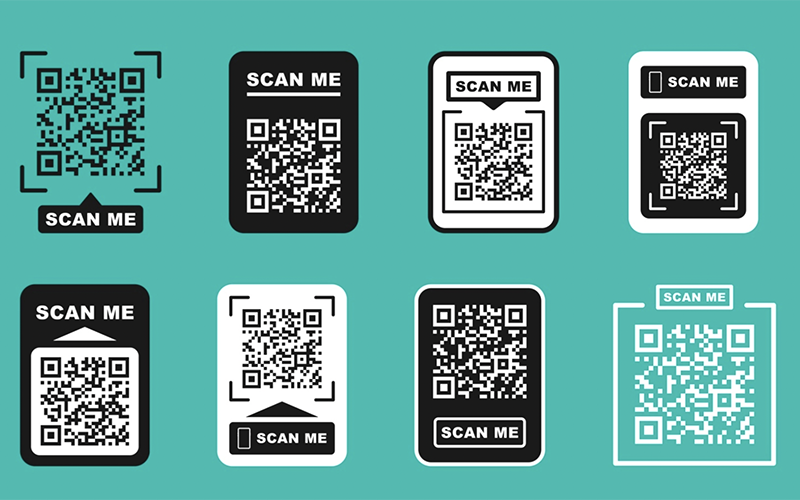
Where Are QR Codes Most Commonly Used?
Created on 3 December, 2024 • 2 views • 2 minutes read
QR codes have become a ubiquitous tool in our modern, tech-driven world. Their versatility and ease of use make them a go-to solution across industries for bridging the gap between the physical and digital realms. Here’s a closer look at the most common use cases for QR codes:
Marketing and Advertising
Businesses leverage QR codes to enhance their advertising campaigns.
- Billboards and Posters: QR codes on physical advertisements enable customers to access more detailed information or promotional offers instantly.
- Product Packaging: Scanning QR codes on packaging can direct users to promotional videos, recipes, or detailed product specifications.
- Flyers and Brochures: They make printed materials interactive, linking readers to websites, sign-up forms, or event details.
Retail and E-commerce
In retail, QR codes improve the customer experience by offering:
- Price Comparison: Customers can scan QR codes to compare prices or check product reviews.
- Loyalty Programs: They simplify the process of collecting points or redeeming rewards.
- Contactless Payments: QR codes are often used to enable safe, cashless transactions.
Hospitality and Tourism
QR codes are widely used in the hospitality sector to enhance guest convenience.
- Restaurant Menus: Many establishments use QR codes to offer contactless menus, especially after the pandemic.
- Hotel Services: Guests can scan QR codes to access information about hotel amenities, order room service, or book activities.
- Tourism Information: QR codes on landmarks or in travel guides provide detailed historical or cultural insights.
Healthcare
In healthcare, QR codes play a crucial role in:
- Patient Information: Hospitals use them for quick access to patient records or reports.
- Medication Packaging: QR codes provide detailed dosage and safety instructions.
- Health Campaigns: They direct users to awareness material or vaccination appointment portals.
Education and Training
Educational institutions use QR codes to make learning more interactive.
- Study Materials: Teachers can link students to videos, assignments, or additional reading materials.
- Event Check-ins: QR codes simplify the registration process for workshops, seminars, and other events.
- Campus Navigation: New students can scan codes to navigate their way around the campus.
Transportation and Logistics
The transportation industry has embraced QR codes for efficiency:
- Tickets and Boarding Passes: Scanning a QR code for entry is now standard in airports, trains, and even buses.
- Package Tracking: QR codes on parcels help customers track their shipments in real time.
- Vehicle Information: QR codes on rental vehicles provide details on rental agreements and vehicle conditions.
Events and Entertainment
QR codes are indispensable for event organizers and attendees alike:
- Event Tickets: Digital tickets often feature QR codes for easy check-in.
- Interactive Experiences: At concerts or exhibitions, QR codes link to exclusive content or merchandise.
- Networking: Business events often include QR codes on badges, allowing participants to exchange contact details instantly.
Personal Use
Even on a personal level, QR codes are finding utility:
- Digital Business Cards: Professionals use QR codes to share their contact information effortlessly.
- Social Media Links: QR codes are used to connect directly to social media profiles or posts.
- Wi-Fi Access: Sharing Wi-Fi passwords via QR codes has become a popular and secure method.
QR codes are more than just a trend—they’re a powerful tool that simplifies access to information, enhances user engagement, and streamlines processes across industries. Their adaptability ensures that their usage will continue to expand as technology evolves.
Whether it’s for business or personal purposes, incorporating QR codes into daily operations offers endless opportunities to connect and engage.
Popular posts
-
Where Are QR Codes Most Commonly Used?• 2 views
-